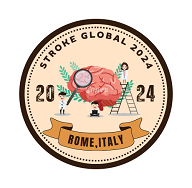Scientific Sessions
Session on Neuroinflammation and Neurological Disorders: Mechanisms, Impact, and Therapeutic Strategies
Neuroinflammation, characterized by the activation of immune cells in the central nervous system, has emerged as a critical factor in the pathogenesis and progression of various neurological disorders. This session focuses on understanding the mechanisms of neuroinflammation, its impact on neurological disorders, and the development of therapeutic strategies to mitigate its effects.
During this session, leading experts in the field will present the latest research findings on neuroinflammation and its role in neurological disorders such as Alzheimer's disease, Parkinson's disease, multiple sclerosis, and stroke. They will delve into the underlying molecular and cellular mechanisms that drive neuroinflammation, including the involvement of immune cells, cytokines, and oxidative stress. Discussions will revolve around the impact of neuroinflammation on neuronal function, neurodegeneration, and cognitive decline. Presentations will highlight the potential therapeutic targets and strategies to modulate neuroinflammation, such as anti-inflammatory drugs, immune-modulating agents, and neuroprotective interventions. Attendees will gain valuable insights into the complex interplay between neuroinflammation and neurological disorders, deepening their understanding of the underlying pathophysiology. They will also explore the potential of novel therapeutic approaches that aim to regulate neuroinflammatory responses and prevent or slow down disease progression.
By attending this session, researchers, clinicians, and healthcare professionals will be equipped with the latest knowledge and advancements in neuroinflammation and its implications for neurological disorders. This session aims to foster collaborations, inspire innovative research, and ultimately contribute to the development of effective therapeutic strategies to combat neuroinflammation and improve patient outcomes in neurological disorders.
Session on Precision Medicine in Neurology: Personalized Approaches for Optimal Patient Care
Precision medicine has revolutionized the field of neurology by recognizing that each patient's condition is unique, and treatment should be tailored to individual characteristics. This session focuses on the applications of precision medicine in neurology and explores how personalized approaches can optimize patient care.
During this session, renowned experts will present the latest research and advancements in precision medicine for neurological disorders. They will discuss the integration of genomics, biomarkers, imaging techniques, and advanced diagnostics to provide precise diagnoses, select appropriate treatments, and monitor disease progression. Attendees will gain insights into the potential of precision medicine in improving patient outcomes, identifying risk factors, and predicting treatment responses. The session will highlight case studies where precision medicine approaches have led to more effective and targeted therapies, resulting in improved quality of life for patients. Discussions will also cover the challenges and future directions of precision medicine in neurology, including data management, ethical considerations, and implementation strategies. The session aims to foster interdisciplinary collaborations and inspire innovative research in the field.
By attending this session, clinicians, researchers, and healthcare professionals will enhance their understanding of the role of precision medicine in neurology. They will be equipped with the knowledge and tools to incorporate personalized approaches into their practice, ultimately leading to optimal patient care and better treatment outcomes in neurological disorders.
Session on Advances in Neuroimaging Technologies: Unraveling the Intricacies of the Brain
Neuroimaging technologies have revolutionized our understanding of the intricacies of the human brain. This session focuses on the latest advancements in neuroimaging and their role in unraveling the mysteries of the brain.
During this session, experts will present cutting-edge research and innovations in neuroimaging technologies, such as functional magnetic resonance imaging (fMRI), diffusion tensor imaging (DTI), positron emission tomography (PET), and magnetoencephalography (MEG). They will discuss how these techniques provide valuable insights into brain structure, function, connectivity, and pathology. Discussions will revolve around the applications of neuroimaging in studying neurological disorders, including Alzheimer's disease, Parkinson's disease, epilepsy, and stroke. Experts will highlight how neuroimaging aids in early detection, accurate diagnosis, treatment planning, and monitoring disease progression. Moreover, advancements in machine learning and artificial intelligence are transforming the field of neuroimaging analysis. Presentations will cover innovative computational methods and image processing techniques that enhance the accuracy, efficiency, and interpretation of neuroimaging data.
By attending this session, researchers, clinicians, and neuroscientists will gain a deeper understanding of the capabilities and limitations of neuroimaging technologies. They will be updated on the latest research findings and the potential of neuroimaging in advancing our knowledge of brain structure and function. The session aims to foster collaborations and inspire further research to unlock the mysteries of the brain and improve patient care in neurological disorders.
Session on Neurogenetics and Neurological Disorders: From Genes to Clinical Practice
The field of neurogenetics has significantly advanced our understanding of the genetic factors underlying neurological disorders. This session focuses on the intricate relationship between genetics and neurological disorders, exploring the journey from genes to clinical practice.
During this session, experts in neurogenetics will present the latest research findings on the genetic basis of neurological disorders such as Alzheimer's disease, Parkinson's disease, Huntington's disease, and epilepsy. They will discuss the identification of disease-causing genes, genetic risk factors, and the complex interplay between genetics and environmental factors. Discussions will revolve around the translation of genetic discoveries into clinical practice. Experts will share insights on the diagnostic applications of genetic testing, genetic counseling, and the integration of genetic information into personalized treatment strategies. The session will also cover the advancements in genomic technologies, such as next-generation sequencing and whole-genome sequencing, which have revolutionized the field of neurogenetics and facilitated the identification of rare genetic variants.
By attending this session, researchers, clinicians, and genetic counselors will gain a comprehensive understanding of the role of genetics in neurological disorders. They will be updated on the latest genetic discoveries, diagnostic tools, and therapeutic implications, enabling them to provide more precise and personalized care to patients with neurological disorders. The session aims to bridge the gap between genetic research and clinical practice, fostering collaborations and paving the way for advancements in precision medicine in neurology.
Session on Emerging Therapies for Neurodegenerative Diseases: Exploring Novel Treatment Approaches
Neurodegenerative diseases, such as Alzheimer's disease, Parkinson's disease, and Huntington's disease, pose significant challenges in healthcare due to their progressive nature and limited treatment options. This session focuses on exploring the latest emerging therapies and novel treatment approaches for neurodegenerative diseases.
During this session, leading experts will present groundbreaking research and advancements in the field of neurodegenerative disease treatment. They will discuss innovative therapeutic strategies, including disease-modifying therapies, gene therapies, stem cell-based approaches, and targeted drug interventions. Discussions will revolve around the mechanisms of action, preclinical and clinical trial data, and the potential of these emerging therapies to halt disease progression, improve symptoms, and enhance the quality of life for patients. Presentations will also cover the challenges and future directions in the development and implementation of these novel treatment approaches. Attendees will gain insights into the cutting-edge research and potential breakthroughs in the treatment of neurodegenerative diseases. They will have the opportunity to engage in discussions, exchange knowledge, and foster collaborations with experts in the field.
By attending this session, researchers, clinicians, and healthcare professionals will be updated on the latest advancements in emerging therapies for neurodegenerative diseases. They will gain a deeper understanding of the potential of these novel treatment approaches and their implications for patient care. The session aims to inspire further research, accelerate the development of effective therapies, and ultimately improve the lives of individuals affected by neurodegenerative diseases.
Session on Neuroplasticity and Brain Rehabilitation: Harnessing the Power of Neural Rewiring
Neuroplasticity, the brain's ability to reorganize and form new neural connections, holds immense potential for brain rehabilitation. This session focuses on the latest research and advancements in understanding neuroplasticity and harnessing its power for brain rehabilitation.
During this session, experts will present cutting-edge studies on neuroplasticity, discussing the underlying mechanisms and the ways in which it can be harnessed to promote recovery in individuals with neurological conditions. They will explore the role of various interventions, such as physical therapy, cognitive training, and non-invasive brain stimulation techniques, in facilitating neuroplasticity and improving functional outcomes. Discussions will revolve around the clinical applications of neuroplasticity in neurological disorders, including stroke, traumatic brain injury, and neurodevelopmental disorders. Experts will highlight evidence-based rehabilitation strategies that leverage neuroplasticity to optimize recovery and enhance neural reorganization. Furthermore, advancements in technology and innovative approaches, such as virtual reality and brain-computer interfaces, are expanding the possibilities for neuroplasticity-based rehabilitation. Presentations will cover the integration of these tools into rehabilitation protocols and their impact on functional outcomes.
By attending this session, clinicians, researchers, and healthcare professionals will gain a deeper understanding of neuroplasticity and its implications for brain rehabilitation. They will learn about the latest evidence-based approaches to harness the power of neural rewiring and improve patient outcomes. The session aims to inspire collaboration, foster innovative research, and ultimately enhance the rehabilitation journey for individuals with neurological conditions.
Session on Stroke Prevention and Rehabilitation: Integrating Evidence-based Strategies
Stroke is a leading cause of disability and mortality worldwide, emphasizing the importance of effective prevention and rehabilitation strategies. This session focuses on the integration of evidence-based approaches for stroke prevention and rehabilitation.
During this session, experts will present the latest research findings and advancements in stroke prevention strategies. They will discuss the role of lifestyle modifications, such as diet, exercise, and smoking cessation, in reducing stroke risk. Presentations will also highlight the importance of early identification and management of risk factors, including hypertension, diabetes, and atrial fibrillation. Furthermore, the session will delve into evidence-based rehabilitation interventions for stroke survivors. Experts will discuss multidisciplinary approaches that incorporate physical therapy, occupational therapy, speech therapy, and cognitive rehabilitation to optimize functional recovery and quality of life. Attendees will gain insights into the latest advancements in stroke rehabilitation technologies, such as robotics, virtual reality, and brain-computer interfaces. Discussions will also cover the integration of telemedicine and remote monitoring in stroke care, facilitating access to specialized care and improving outcomes. The session aims to explore innovative models of stroke care delivery and emphasize the importance of a comprehensive and patient-centered approach.
By attending this session, healthcare professionals, researchers, and clinicians will gain a deeper understanding of evidence-based strategies for stroke prevention and rehabilitation. They will be updated on the latest research findings, treatment guidelines, and emerging technologies in the field. The session aims to foster collaboration, inspire best practices, and ultimately improve the quality of stroke care and patient outcomes.
Session on Neurological Disorders in Pediatric Populations: Diagnosis, Management, and Future Perspectives
Neurological disorders can have a profound impact on pediatric populations, affecting their development, quality of life, and long-term outcomes. This session focuses on the diagnosis, management, and future perspectives of neurological disorders in children.
During this session, experts in pediatric neurology will present the latest research and advancements in understanding and treating neurological disorders in children. They will discuss the challenges and best practices in diagnosing pediatric neurological conditions, including epilepsy, cerebral palsy, neurodevelopmental disorders, and genetic syndromes. Presentations will cover evidence-based management strategies, including pharmacological interventions, rehabilitative therapies, and multidisciplinary care models. Experts will emphasize the importance of early intervention, individualized treatment plans, and family-centered approaches in optimizing outcomes for children with neurological disorders. Discussions will also focus on the future perspectives of pediatric neurology, including advances in genetic testing, precision medicine, and targeted therapies. Experts will explore the potential of innovative technologies and interventions to improve diagnosis, treatment monitoring, and long-term prognosis in pediatric neurological disorders.
By attending this session, clinicians, researchers, and healthcare professionals specializing in pediatric neurology will gain valuable insights into the latest advancements and best practices in diagnosing and managing neurological disorders in children. The session aims to foster collaboration, inspire future research endeavors, and ultimately improve the lives of children affected by neurological conditions.
Session on Cognitive Impairment in Neurological Disorders: From Assessment to Intervention
Cognitive impairment is a common and often debilitating consequence of various neurological disorders, including Alzheimer's disease, Parkinson's disease, multiple sclerosis, and stroke. This session focuses on the comprehensive assessment and intervention strategies for cognitive impairment in neurological disorders.
During this session, experts will discuss the latest advancements in cognitive assessment tools, neuropsychological testing, and neuroimaging techniques used to evaluate cognitive functioning in patients with neurological disorders. Presentations will cover the importance of early and accurate diagnosis, as well as the identification of specific cognitive domains affected by different disorders. The session will also explore evidence-based interventions and rehabilitation strategies for cognitive impairment. Experts will highlight the effectiveness of cognitive training, cognitive rehabilitation programs, pharmacological treatments, and non-pharmacological interventions in improving cognitive function, promoting independence, and enhancing quality of life for individuals with neurological disorders. Furthermore, discussions will revolve around emerging technologies, such as digital health platforms, virtual reality, and mobile applications, that hold promise in cognitive assessment and intervention. Experts will share their insights on the integration of these technologies into clinical practice and the potential benefits they offer in enhancing cognitive rehabilitation outcomes.
By attending this session, clinicians, researchers, and healthcare professionals will gain a deeper understanding of cognitive impairment in neurological disorders and the latest assessment and intervention strategies. The session aims to foster collaboration, inspire innovative research, and ultimately improve the cognitive outcomes and overall well-being of individuals affected by neurological disorders.
Session on Innovative Approaches in Neurological Surgery: Advancements and Outcomes
Neurological surgery plays a crucial role in the treatment of various neurological disorders, offering hope and improved outcomes for patients. This session focuses on the latest advancements and outcomes associated with innovative approaches in neurological surgery.
During this session, experts in the field will present cutting-edge research and advancements in neurological surgical techniques. They will discuss minimally invasive procedures, robotic-assisted surgery, intraoperative imaging, and neuroendoscopy, among other innovative approaches. Presentations will highlight the benefits of these techniques, including reduced surgical trauma, improved precision, and faster recovery times. Discussions will revolve around the applications of these innovative approaches in the treatment of neurological disorders such as brain tumors, epilepsy, movement disorders, and vascular abnormalities. Experts will share their experiences, challenges, and success stories in utilizing these techniques to optimize surgical outcomes and patient safety. Moreover, the session will address the integration of technology, such as augmented reality, virtual reality, and 3D printing, in preoperative planning and intraoperative navigation. Experts will discuss the potential of these technologies to enhance surgical precision, improve patient outcomes, and advance the field of neurological surgery.
By attending this session, neurosurgeons, researchers, and healthcare professionals will gain insights into the latest advancements and outcomes associated with innovative approaches in neurological surgery. The session aims to inspire collaboration, foster interdisciplinary research, and contribute to the continuous improvement of surgical techniques and patient care in the field of neurosurgery.
Session on Neurological Complications of COVID-19: Understanding the Impact and Management
The COVID-19 pandemic has brought attention to the various ways the virus affects the body, including its impact on the nervous system. This session focuses on understanding the neurological complications associated with COVID-19 and exploring their management strategies.
During this session, experts will present the latest research findings on the neurological manifestations of COVID-19. They will discuss the diverse range of neurological complications observed, such as encephalopathy, stroke, Guillain-Barré syndrome, and anosmia. Presentations will delve into the underlying mechanisms, including direct viral invasion, immune-mediated responses, and hypercoagulability. Discussions will revolve around diagnostic approaches and management strategies for neurological complications in COVID-19 patients. Experts will highlight the importance of early recognition, comprehensive neurological assessment, and multidisciplinary care in optimizing patient outcomes. The session will also address the long-term effects and potential neurorehabilitation needs of COVID-19 survivors. Furthermore, the session will explore ongoing research efforts and emerging evidence regarding the neurological complications of COVID-19. Experts will discuss the implications for public health, vaccination strategies, and future preparedness.
By attending this session, clinicians, researchers, and healthcare professionals will gain valuable insights into the neurological complications associated with COVID-19. They will be updated on the latest research, diagnostic approaches, and management strategies. The session aims to foster collaboration, inspire further research endeavors, and ultimately improve the care and outcomes of individuals affected by COVID-19-related neurological complications.
Session on Neural Stem Cells and Regenerative Medicine: Potential Applications in Neurological Disorders
Neural stem cells hold tremendous potential for regenerative medicine in the field of neurological disorders. This session focuses on exploring the promising applications of neural stem cells and regenerative approaches in the treatment of various neurological disorders.
During this session, experts will discuss the latest research findings and advancements in the field of neural stem cells. They will present preclinical and clinical studies that highlight the potential of neural stem cells for replacing damaged or lost neurons, promoting tissue repair, and enhancing functional recovery in neurological disorders. Presentations will cover different sources of neural stem cells, including embryonic stem cells, induced pluripotent stem cells, and adult stem cells. Experts will discuss the challenges and considerations associated with their isolation, expansion, and transplantation. Discussions will revolve around the specific applications of neural stem cells in neurological disorders such as spinal cord injury, stroke, Parkinson's disease, and multiple sclerosis. Experts will share insights on the mechanisms of action, safety considerations, and the potential of combination therapies involving neural stem cells and other regenerative approaches. Moreover, the session will highlight the importance of translating laboratory discoveries into clinical practice. Experts will discuss ongoing clinical trials, regulatory considerations, and the future directions of neural stem cell-based therapies in the field of neurological disorders.
By attending this session, researchers, clinicians, and healthcare professionals will gain a deeper understanding of the potential applications of neural stem cells in neurological disorders. They will be updated on the latest advancements, challenges, and opportunities in regenerative medicine for neurological conditions. The session aims to foster collaboration, inspire further research, and ultimately pave the way for innovative and effective treatments in the field of neurology.
Session on Translational Neuroscience: Bridging the Gap between Research and Clinical Practice
Translational neuroscience plays a crucial role in bridging the gap between scientific discoveries and their practical applications in clinical settings. This session focuses on the importance of translating neuroscience research findings into effective clinical practices for the benefit of patients.
During this session, experts will highlight the latest advancements in translational neuroscience and discuss its implications for clinical practice. They will explore the challenges and opportunities involved in translating basic neuroscience research into tangible treatments and interventions for neurological disorders. Presentations will cover a wide range of topics, including biomarker development, novel therapeutic targets, drug discovery, and innovative technologies. Experts will discuss how translational neuroscience can lead to earlier diagnosis, more accurate prognosis, and personalized treatment approaches. Discussions will revolve around the collaboration between researchers, clinicians, and industry partners in driving the translation of neuroscience research. The session will address the importance of clinical trials, regulatory considerations, and real-world implementation of translational discoveries. Furthermore, the session will highlight successful examples of translational neuroscience, showcasing how research findings have been translated into clinical applications. Experts will discuss the impact of these advancements on patient care and outcomes.
By attending this session, researchers, clinicians, and healthcare professionals will gain insights into the critical role of translational neuroscience in advancing clinical practice. They will learn about the latest advancements, challenges, and strategies in bridging the gap between research and clinical application. The session aims to foster collaboration, inspire innovative approaches, and ultimately improve patient care through the translation of neuroscience discoveries into meaningful clinical interventions.
Session on Neurodegenerative Disorders and Aging: Exploring the Connection and Interventions
As the global population ages, the prevalence of neurodegenerative disorders, such as Alzheimer's disease, Parkinson's disease, and Huntington's disease, continues to rise. This session aims to explore the intricate connection between neurodegenerative disorders and aging, as well as interventions to promote healthy aging and mitigate the impact of these disorders.
During this session, experts will present the latest research findings on the relationship between neurodegenerative disorders and the aging process. They will discuss the underlying mechanisms that contribute to the increased susceptibility to neurodegeneration in older adults, including oxidative stress, inflammation, and cellular aging. Presentations will also focus on interventions and lifestyle factors that have been shown to promote healthy brain aging and potentially reduce the risk of neurodegenerative disorders. These may include physical exercise, cognitive stimulation, social engagement, and a healthy diet. Experts will discuss the evidence supporting these interventions and their potential mechanisms of action.Furthermore, discussions will revolve around emerging therapeutic strategies for neurodegenerative disorders, including disease-modifying drugs, gene therapies, and regenerative medicine approaches. Experts will highlight the latest advancements in these fields and their potential to slow disease progression and improve quality of life for affected individuals.
By attending this session, researchers, clinicians, and healthcare professionals will gain valuable insights into the connection between neurodegenerative disorders and aging. They will be updated on the latest research, interventions, and therapeutic strategies aimed at promoting healthy brain aging and mitigating the impact of neurodegenerative disorders. The session aims to inspire collaboration, foster innovative research, and ultimately improve the understanding and management of neurodegenerative disorders in aging populations.
Session on Neuromodulation Techniques: Enhancing Therapeutic Outcomes in Neurological Disorders
Neuromodulation has emerged as a promising field in the treatment of various neurological disorders. This session focuses on the latest advancements and applications of neuromodulation techniques in enhancing therapeutic outcomes for patients.
During this session, experts will present the latest research findings and advancements in neuromodulation techniques, such as deep brain stimulation (DBS), transcranial magnetic stimulation (TMS), and spinal cord stimulation (SCS). They will discuss the mechanisms of action, patient selection criteria, and evidence-based outcomes of these interventions. Presentations will cover a wide range of neurological disorders, including Parkinson's disease, epilepsy, chronic pain, depression, and movement disorders. Experts will highlight the therapeutic benefits and potential side effects of neuromodulation in these conditions, emphasizing the importance of personalized approaches and multidisciplinary care. Discussions will revolve around emerging neuromodulation technologies, such as closed-loop systems and non-invasive stimulation techniques. Experts will explore the potential of these innovations in improving patient outcomes, reducing side effects, and expanding the scope of neuromodulation therapy. Moreover, the session will address the challenges and future directions in the field of neuromodulation, including optimizing stimulation parameters, refining targeting strategies, and enhancing long-term efficacy.
By attending this session, clinicians, researchers, and healthcare professionals will gain insights into the latest advancements and applications of neuromodulation techniques in neurological disorders. They will learn about evidence-based practices, patient selection criteria, and future developments in the field. The session aims to inspire collaboration, foster innovative research, and ultimately enhance therapeutic outcomes for patients with neurological disorders through the use of neuromodulation techniques.
Session on Biomarkers in Neurological Disorders: Advancing Diagnosis, Prognosis, and Treatment
Biomarkers play a crucial role in the field of neurological disorders by providing objective measures that aid in the diagnosis, prognosis, and treatment of various conditions. This session focuses on the latest advancements in biomarkers and their potential to advance the field of neurological disorders.
During this session, experts will present cutting-edge research findings and advancements in the field of biomarkers. They will discuss the identification, validation, and application of biomarkers in neurological disorders such as Alzheimer's disease, Parkinson's disease, multiple sclerosis, and stroke. Presentations will cover various types of biomarkers, including neuroimaging biomarkers, cerebrospinal fluid biomarkers, blood-based biomarkers, and genetic biomarkers. Experts will discuss the role of these biomarkers in disease diagnosis, monitoring disease progression, predicting treatment response, and evaluating treatment efficacy. Discussions will revolve around the challenges and opportunities associated with biomarker development and implementation in clinical practice. Experts will address topics such as standardization, reproducibility, and the integration of biomarkers into clinical decision-making processes. Furthermore, the session will explore emerging biomarkers and innovative technologies that hold promise in improving the accuracy and specificity of biomarker-based assessments. Experts will discuss the potential of novel biomarkers in early disease detection, identifying at-risk individuals, and guiding personalized treatment approaches.
By attending this session, researchers, clinicians, and healthcare professionals will gain insights into the latest advancements and applications of biomarkers in neurological disorders. They will be updated on the current state of biomarker research, challenges, and future directions in the field. The session aims to foster collaboration, inspire further research, and ultimately improve patient care through the utilization of biomarkers for diagnosis, prognosis, and treatment in neurological disorders.
Session on Telemedicine in Neurology: Expanding Access and Improving Patient Care
Telemedicine has revolutionized healthcare delivery, and its impact on neurology is remarkable. This session focuses on the expanding role of telemedicine in neurology, exploring how it enhances access to care, improves patient outcomes, and transforms the delivery of neurological services.
During this session, experts will present the latest advancements and applications of telemedicine in neurology. They will discuss the various modalities of telemedicine, including video consultations, remote monitoring, and mobile health applications, highlighting their benefits and limitations. Presentations will cover a wide range of neurological conditions, including stroke, epilepsy, movement disorders, and neurodegenerative diseases. Experts will discuss how telemedicine facilitates timely diagnosis, enables remote monitoring of disease progression, and provides access to specialized care for individuals residing in remote or underserved areas. Discussions will revolve around the challenges and opportunities in implementing telemedicine in neurology, including regulatory considerations, data privacy, and reimbursement models. Experts will share best practices, lessons learned, and strategies for overcoming barriers to telemedicine adoption. Moreover, the session will address the future directions of telemedicine in neurology, including the integration of artificial intelligence, remote diagnostics, and tele-rehabilitation. Experts will explore the potential of these technologies in enhancing the quality and efficiency of neurological care.
By attending this session, clinicians, researchers, and healthcare professionals will gain insights into the expanding role of telemedicine in neurology. They will learn about the latest advancements, best practices, and future directions in the field. The session aims to inspire collaboration, foster innovative research, and ultimately improve access to high-quality neurological care through the utilization of telemedicine.
Session on Ethical Issues in Neurological Research and Practice: Balancing Innovation and Patient Rights
Neurological research and practice are constantly evolving, introducing new interventions, therapies, and technologies. However, alongside these advancements, ethical considerations play a crucial role in ensuring the well-being and rights of patients. This session focuses on the ethical issues that arise in neurological research and practice, emphasizing the need to strike a balance between innovation and patient rights.
During this session, experts will discuss a range of ethical issues encountered in neurological research and practice. They will explore topics such as informed consent, privacy and data protection, equity in access to care, and the responsible use of emerging technologies. Presentations will highlight the ethical considerations specific to neurological disorders, including decision-making capacity, end-of-life care, and the use of neuroenhancement techniques. Experts will discuss the importance of promoting patient autonomy, beneficence, and justice in neurological research and clinical care. Discussions will revolve around the ethical frameworks, guidelines, and regulations that govern neurological research and practice. Experts will address the challenges and dilemmas faced by clinicians, researchers, and healthcare professionals in navigating these ethical considerations.
Moreover, the session will encourage open dialogue and critical reflection on ethical issues, inviting participants to share their experiences and insights. The session aims to foster a deeper understanding of the ethical dimensions of neurological research and practice, promote ethical decision-making, and ultimately ensure that patient rights and welfare remain at the forefront of innovation in the field of neurology.
Session on Innovations in Neurorehabilitation: Integrating Technology and Evidence-based Interventions
Neurorehabilitation plays a crucial role in helping individuals regain function and independence after neurological injuries or conditions. This session focuses on the latest innovations in neurorehabilitation, specifically the integration of technology and evidence-based interventions to optimize patient outcomes.
During this session, experts will present cutting-edge research and advancements in neurorehabilitation. They will discuss the integration of innovative technologies, such as virtual reality, robotics, and brain-computer interfaces, into rehabilitation protocols. These technologies provide interactive and personalized interventions that enhance engagement, promote neuroplasticity, and improve functional outcomes. Presentations will cover evidence-based interventions in neurorehabilitation, including physical therapy, occupational therapy, speech therapy, and cognitive rehabilitation. Experts will highlight the importance of individualized treatment plans, multidisciplinary collaboration, and goal-oriented approaches in maximizing recovery. Discussions will revolve around the integration of technology and evidence-based interventions in clinical practice. Experts will explore the challenges and opportunities associated with adopting and implementing these innovations, including training, cost-effectiveness, and patient acceptance. Moreover, the session will address emerging trends and future directions in neurorehabilitation. Experts will discuss the potential of remote and home-based rehabilitation, wearable devices, and mobile applications in extending access to care and enhancing patient engagement.
By attending this session, clinicians, researchers, and healthcare professionals will gain insights into the latest innovations in neurorehabilitation. They will be updated on evidence-based practices, technology integration, and future trends in the field. The session aims to inspire collaboration, foster innovative research, and ultimately improve patient outcomes in neurorehabilitation through the integration of technology and evidence-based interventions.
Session on Neurological Disorders and Mental Health: Understanding the Connection and Holistic Management
Neurological disorders and mental health conditions often coexist and interact in complex ways, necessitating a comprehensive and holistic approach to patient care. This session focuses on exploring the connection between neurological disorders and mental health and advancing holistic management strategies.
During this session, experts will present the latest research findings and insights into the relationship between neurological disorders and mental health. They will discuss the bidirectional impact, shared risk factors, and common comorbidities between these conditions. Presentations will cover a wide range of neurological disorders, including epilepsy, multiple sclerosis, movement disorders, and traumatic brain injury, and their association with mental health conditions such as depression, anxiety, and cognitive impairments. Discussions will revolve around the importance of integrated care and interdisciplinary collaboration in managing the complex needs of individuals with coexisting neurological and mental health conditions. Experts will emphasize the value of a person-centered and holistic approach that addresses both the physical and psychological aspects of patient well-being. Moreover, the session will explore evidence-based strategies for holistic management, including psychoeducation, cognitive-behavioral therapies, mindfulness-based interventions, and psychopharmacological treatments. Experts will discuss the challenges and opportunities in delivering integrated care and promoting mental health in individuals with neurological disorders.
By attending this session, clinicians, researchers, and healthcare professionals will gain a deeper understanding of the connection between neurological disorders and mental health. They will be updated on the latest research, management strategies, and best practices in delivering holistic care. The session aims to inspire collaboration, foster interdisciplinary research, and ultimately improve the overall well-being and quality of life of individuals affected by neurological disorders and mental health conditions.














